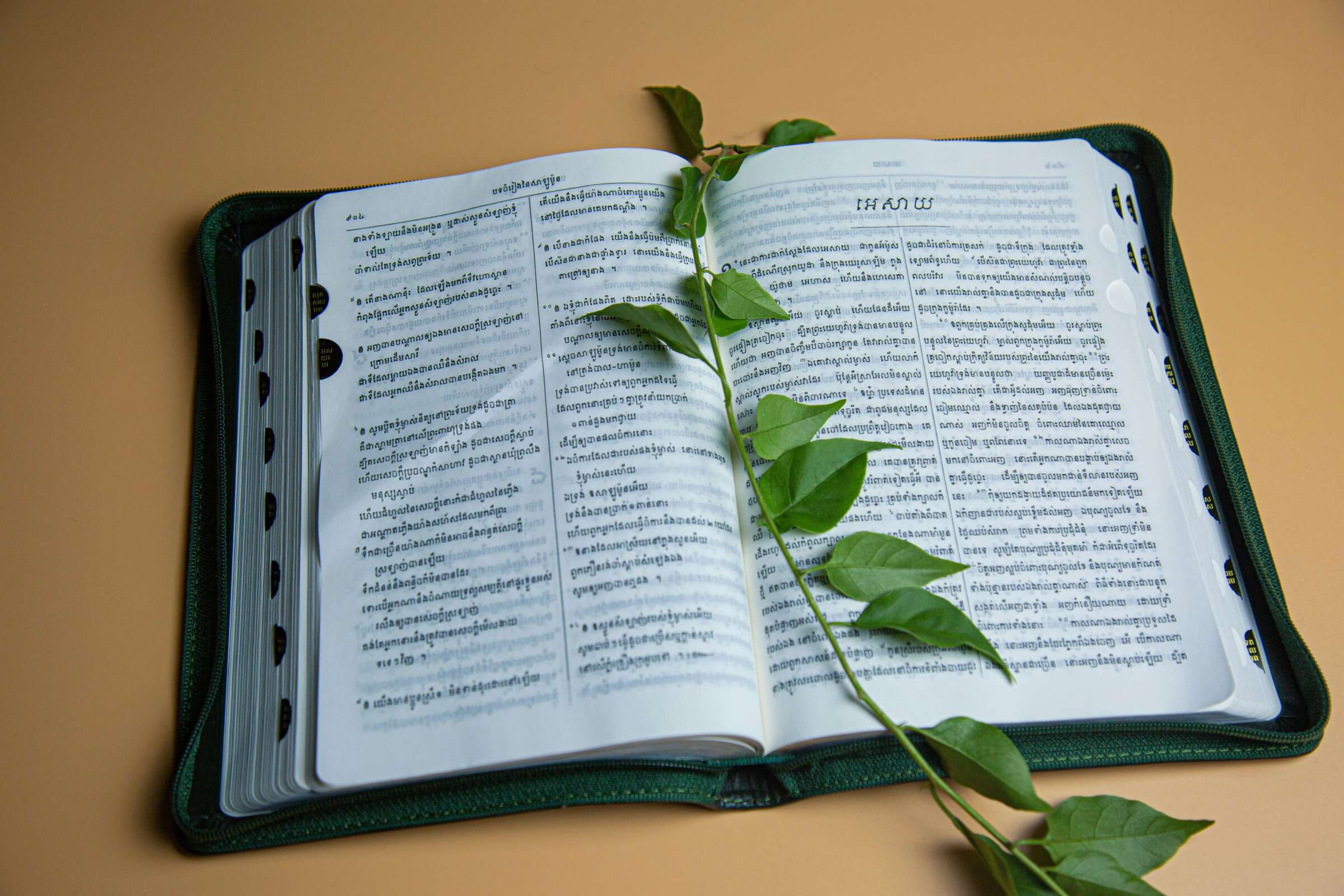The story of the Bible in 66 books
Genesis begins with a garden, where creation is called good and humans are made for relationship. It tells of beginnings, of beauty and brokenness, blessing and betrayal, and the divine longing to restore what is lost.
Genesis begins with a garden, where creation is called good and humans are made for relationship.
Exodus tells of liberation, a God who hears the cries of slaves and leads them to freedom. It reveals a God who sides with the oppressed, who breaks chains and calls people into covenant justice.
Leviticus, Numbers, and Deuteronomy wrestle with how to live justly in covenant community. They hold ancient attempts to shape a society where holiness means fairness, compassion, and care for the vulnerable.
In Joshua and Judges, we see the mess of power and tribalism. The struggle for land becomes a struggle for faithfulness, and the cost of violence and exclusion is laid bare.
Ruth offers a glimpse of loyal love that crosses boundaries. A Moabite woman becomes the great-grandmother of kings, proving that faithfulness matters more than bloodline.
Samuel and Kings chronicle the rise and fall of rulers, and remind us that God isn’t impressed by thrones. They tell of prophets who speak truth to power, and a God who judges leaders by their justice, not their success.
Chronicles, Ezra, and Nehemiah revisit old stories and rebuild broken walls. They remember the past with hope, and imagine that faithfulness might still shape a future beyond ruin. Together, they ask: What does it mean to be God's people in a fractured world?
Esther, Song of Songs, and Lamentations offer holy insight from the margins. They remind us that God’s voice is often heard in unexpected places — in beauty, bravery, and grief.
The Psalms teach us to pray our joy and rage.
Job cries out in suffering, and God answers not with explanations, but presence. In Job’s pain, we find permission to lament; and in God's silence, a mystery deeper than easy answers.
The Psalms teach us to pray our joy and rage. They hold nothing back: songs of praise, cries of despair, pleas for mercy, and visions of hope all belong in prayer.
Proverbs seeks wisdom. It offers everyday insights for living well; grounded in reverence, integrity, and care for the neighbour.
Ecclesiastes tells hard truths. It questions everything: wealth, success, even wisdom itself, and dares us to live meaningfully in a fleeting world.
Continued below...

Daniel dreams beneath empire’s shadow: wild beasts, fiery furnaces, and faith that refuses to bow. It speaks hope into tyranny, trusting that God’s justice will one day overturn the thrones of violence.
Prophets imagine a future where swords become ploughshares, exiles come home, and all shall be well.
The Prophets - Isaiah, Jeremiah, Ezekiel, and the Twelve - call out injustice, plead for repentance, and dream of peace. They rage against corruption, mourn over exile, and speak of a world transformed by righteousness and compassion. Even in exile, hope refuses to die. Prophets imagine a future where swords become ploughshares, exiles come home, and all shall be well.
And then comes a voice in Galilee... Matthew, Mark, Luke, and John - four voices, one story. Each tells of Jesus: healer, teacher, prophet, saviour, whose life reveals divine love in human flesh. Jesus heals, welcomes, teaches, protests. He gathers the outcast, feeds the hungry, confronts the powerful, and opens the kingdom to all. He confronts empire with love, and they crucify him. But death doesn’t get the last word.
Acts tells of the Spirit falling like fire and the church rising up, messy and brave. A community is born that crosses barriers of language, class, gender, and race; a movement of radical welcome.
Paul’s letters urge communities to live love out loud, in real life, with all its complexity. They speak of grace that reshapes identity, of freedom bound to service, and a new humanity in Christ.
Hebrews sees Jesus as the one who opens a new and living way. It ties old stories to new hope, urging perseverance with eyes fixed on what is unseen.
It begins in a garden. It ends in a city. And in between?
Later letters from James, Peter, John & Jude are written to scattered, struggling communities; not from places of power, but from the margins. Together, these letters say: Hold on. Live well. Love deeply. Even in the shadows, light still shines.
Revelation isn’t a prediction but a protest. It’s a cry from the margins against empire’s brutality, and a vision of God’s justice rolling down like rivers. A vision of the world remade: no more tears, no more empire, no more night. The New Jerusalem descends, not a distant dream, but a present call: be the church that shines with healing light.
It begins in a garden.
It ends in a city.
And in between?
It’s a love story told through law and lament, poetry and protest, inviting us to join in God’s work of healing the world.
Retold with kind permission from Shibboleth magazine.

How to read the Bible
How to read the Bible
Reading the Bible is much easier if you follow some simple steps and get prepared. And, as you delve into it, you might find that you are more familiar with the Bible than you expected: it crops up in everything from Shakespeare to Hollywood movies; it’s inspired musicians, historical figures and campaigners.

The history of the Bible

